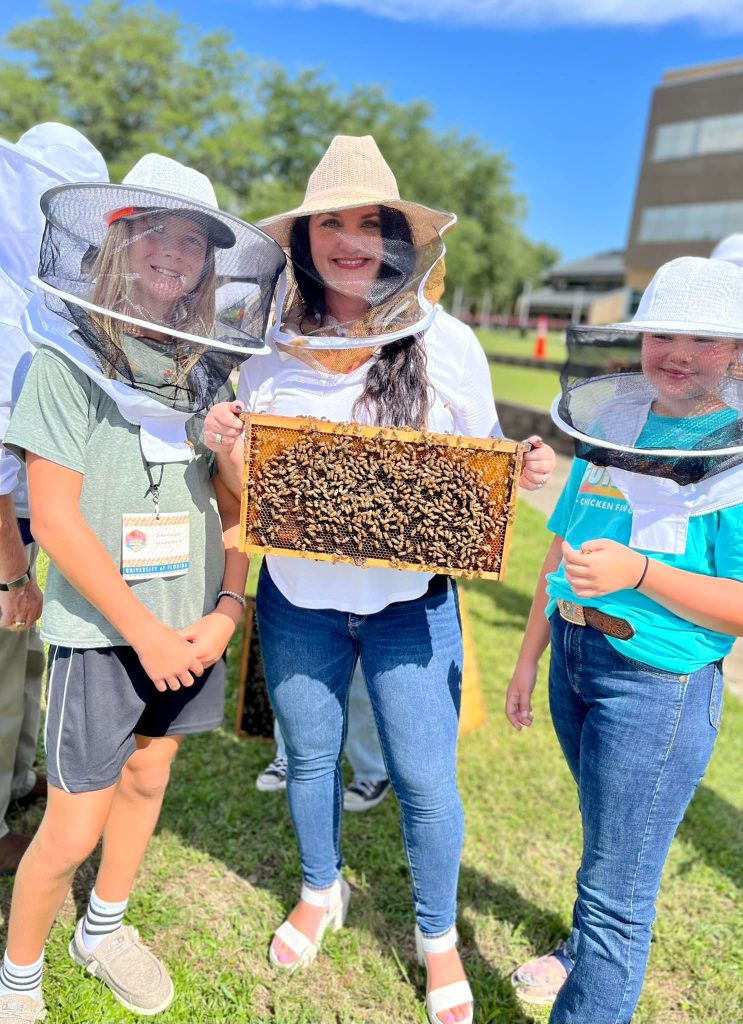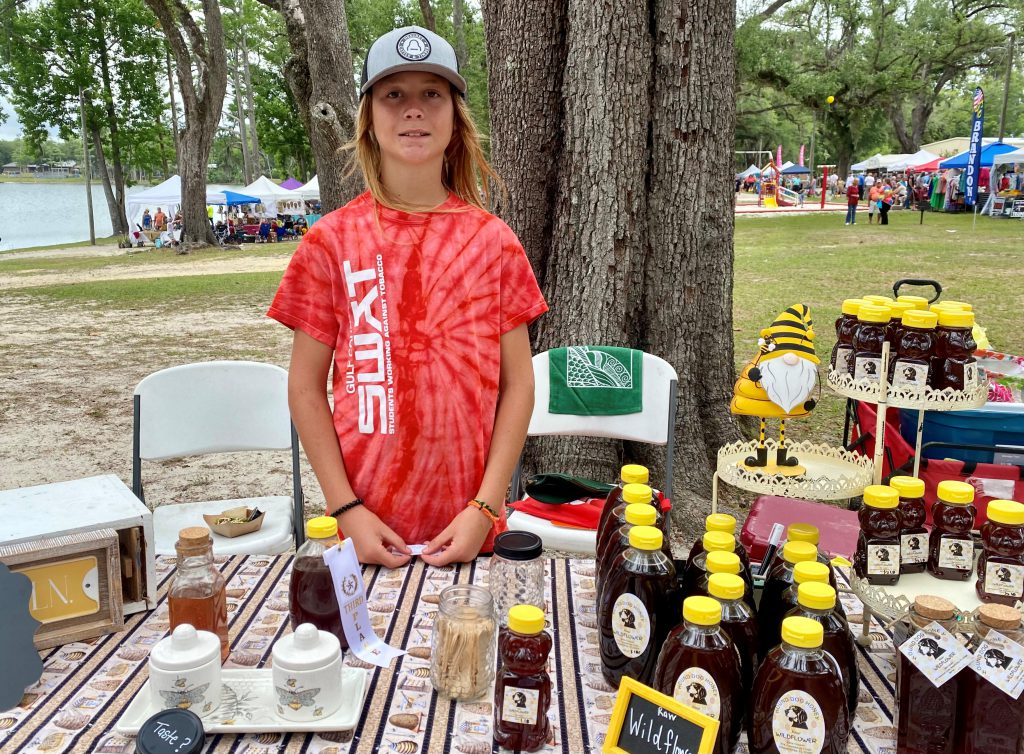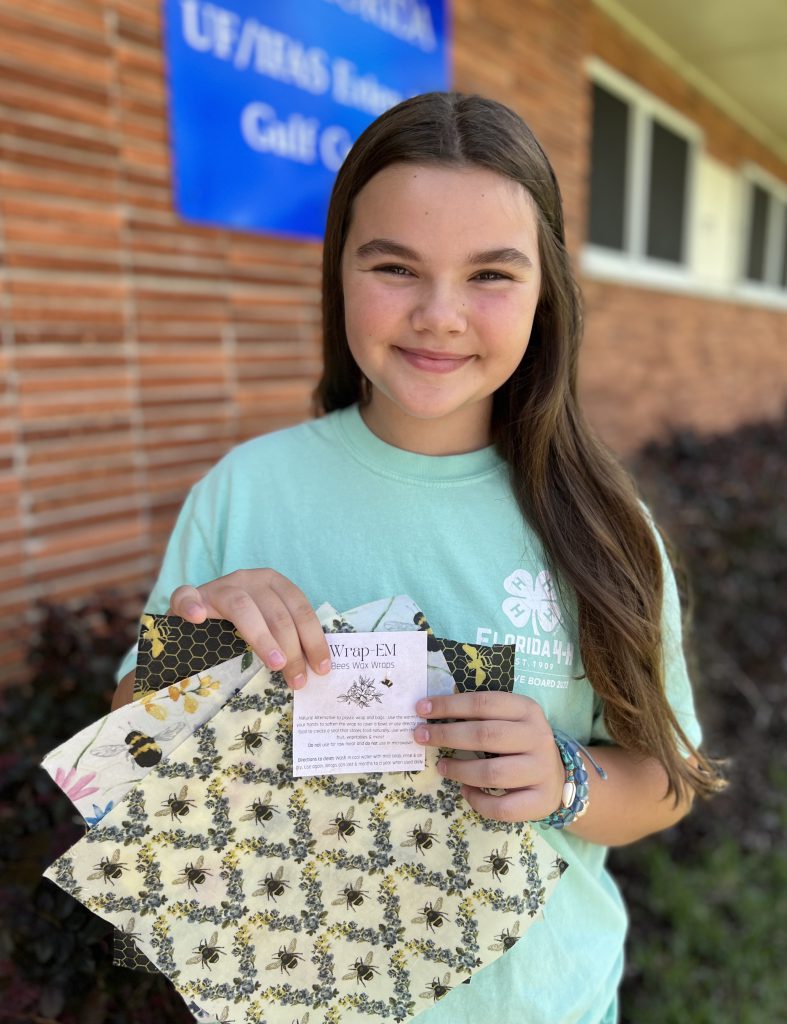In a region of Florida famous for its honey, two entrepreneurial 4-H youth are turning their love of beekeeping into small but growing businesses.
Gulf County residents Emily Flowers, 12, and Zeke Cooper, 13, began keeping their own hives as members of the Gulf County Beekeeping Club. For Emily, beekeeping is a family tradition going back four generations. Zeke is newer to the beekeeping world but no less invested.

“Our county is known for Tupelo honey, so bees and beekeeping play a big role in our community. Emily and Zeke have both sold their products at the Tupelo Honey Festival, and it’s great to see young people interested in this homegrown industry,” said UF/IFAS Extension Gulf County 4-H agent Anitra Mayhann, who supervises the beekeeping club along with club leaders Buddy and Betty Jo Cooper.
Through the club, Emily and Zeke learned the basics of bee biology and how to care for a hive. They even built and decorated their own bee boxes, both of which received a blue ribbon at the last North Florida Fair.
Last year, club members traveled to Panama City to attend the UF Bee College, a program offered through the UF/IFAS Honey Bee Research and Extension Laboratory. Bee College helped Emily and Zeke see how to make beekeeping more than a hobby.

Zeke’s bees have always produced a lot of honey. At first, he kept it for himself and his family, but as his hives produced more and more, he decided to sell it. He now sells Tupelo and wildflower honey at community events and farmers markets under the name Hound Dog Honey. “My family has a lot of dogs, so the name just fit,” he said.
Zeke hopes to invest his earnings into adding more hives to his collection and buying more beekeeping supplies, all with the goal of producing more honey and more profit. He is also interested in one day renting out his bees to farmers who need them to pollinate their crops.
While Emily also loves honey — she recently took a honey tasting judging class to become a honey judge at last month’s Bee College in Gainesville — honey production isn’t her primary business goal. Rather, she is interested in the many applications for beeswax and other honeybee byproducts.
At her first Bee College, Emily learned to treat cotton fabric with beeswax, pine resin and jojoba oil, turning it into a reusable alternative to plastic wrap. She now makes her own wraps, complete with honeybee themed prints, and sells them in local stores. She calls the product Wrap-EM (the “EM” is for Emily), and they recently earned her a blue ribbon and division merit award at the North Florida Fair.

In addition to Wrap-EM, Emily hopes to develop beauty supplies from beeswax, and she wants to explore uses for propolis, the gluey substance bees use to build their hives, and royal jelly, the food worker bees feed to the queen bee.
“It’s amazing how many things you can make. My goal is to get my products in more stores or even sell them online,” Emily said.
Emily also plans to use her business and her voice to help others understand how bees support our food system.
“One of my other 4-H projects is public speaking, and I enjoy educating people about bees and how important they are to growing our food. A quarter of the food we eat is pollinated by bees,” she said.
Interested in getting involved with your local Florida 4-H program? Visit florida4h.org.
4-H is the youth development program of the land-grant university system and Cooperative Extension System. The program provides hands-on educational programs and experiences for youth ages five to 18 with the objective of developing youth as individuals, and as responsible and productive citizens. In Florida, 4-H is administered by University of Florida/IFAS Extension and Florida A&M University.
 1
1
